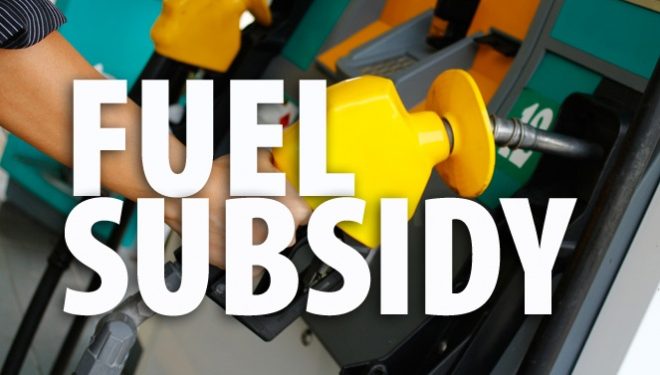Nigeria’s growing fiscal expenditure on petrol subsidy could mount up to nearly 70 percent of the country’s 2022 budget to reach $16.2 billion (N6.7 trillion) by the year 2023 if it continues with the fuel subsidy regime.
This is according to a disclosure made by the Ministry of Finance during the pre-2023 budget consultation in the federal capital Abuja and captured in the Public Consultation on The Draft 2023 – 2025 MTFF/FSP document.
In 2021, Nigeria spent $4.5 billion about 2 percent of its Gross Domestic Product-GDP in subsidizing petrol. Also, earlier this year in April, N4 trillion naira (about N10 billion) was approved to fund the petrol subsidy cost as additional monies were required to offset the higher global oil prices caused by the war in Ukraine.
Fro 2023, the Ministry of Finance in a document presented two fuel subsidy regimes that show how much the government will expend on fiscal subsidy under two scenarios.
Overview of the 2023-2025 Medium Term Fiscal Framework
The projected fiscal outcomes in the medium term are presented under two scenarios based on the underlying budget parameters/assumptions, as follows:
- Scenario 1 – the Business-as-Usual scenario: This assumes that the subsidy on PMS, estimated at N6.72 trillion for the full year 2023, will remain and be fully provided for.
- Scenario 2 – the Reform scenario: This assumes that the petrol subsidy will remain up to mid-2023 based on the 18-month extension announced in early 2021, in which case only N3.36 trillion will be provided for. Additionally, there will be tighter enforcement of the performance management framework for GOEs that will significantly increase operating surplus/dividend remittances in 2023.
According to the document, in the first scenario, given the severely constrained fiscal space, it is not feasible to make any provision for MDAs’ capital expenditure in 2023 beyond multilateral/bilateral loan-funded and donor-funded projects. The FGN’s 2023 aggregate expenditure is estimated at N16.98 trillion, which is N337.05 billion (1.9%) lower than the 2022 budget. The sums of N20.29 trillion and N22.73 trillion are projected to be spent by the FGN in 2024 and 2025, respectively.
For the second scenario, the FGN’s 2023 aggregate expenditure is estimated at N17.99 trillion, N669.82 billion (3.9%) higher than 2022. (Inclusive of GOEs). The sums of N20.29 trillion and N22.73 trillion are projected to be spent by the FGN in 2024 and 2025, respectively.
Furthermore, the ministry stated that both scenarios have implications for net accretion to the Federation Account and projected deficit levels.
What You Should Know
The cost of subsidizing petrol in Nigeria is becoming more burdensome as the expenditure on subsidy increases with the rising oil prices in the global market. This rising fuel subsidy accompanied by the federal government’s debt obligation could pose some serious fiscal strains in the years to come.










